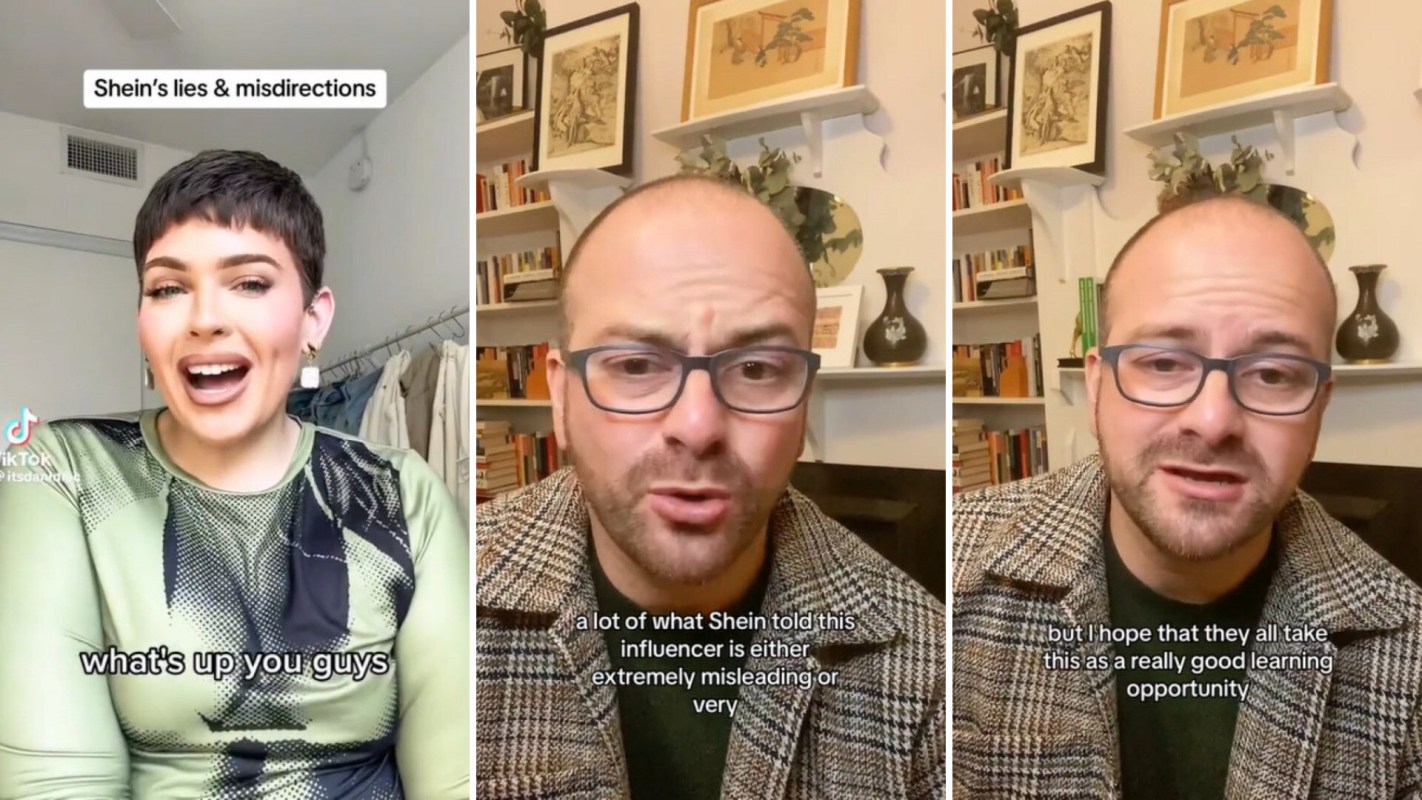"The Great Greenwashing" author and Chinese factory expert John Pabon called out influencer Dani DMC for "extremely misleading" or "very, very wrong" claims about fast fashion company Shein.
In a June TikTok, Pabon (@johnapabon) dismantled misdirection and falsehoods dished out by Dani DMC (@itsdanidmc) on behalf of the brand, writing: "Just cause someone says something doesn't make any of it true. Taking apart the lies #shein told these influencers isn't even that hard."
He featured clips from a TikTok shot by Dani after Shein wined and dined her and five other internet personalities to much backlash.
@johnapabon Just cause someone says something doesn't make any of it true. Taking apart the lies #shein told these influencers isn't even that hard. #sheininfluencers #fastfashionfacts #greenwashing @Danidmc #sustainability ♬ original sound - Sustainability made simple
Pabon said he worked in factories in Southeast Asia for 10 years, focusing on worker betterment programs, sustainability strategies, and transparency metrics.
In the TikTok, he said Shein's outsourced workers — who make just 3 pence per garment while working 18-hour days with one day off per month — allows executives to keep costs low and claim ignorance about bad working conditions and other problems. He also noted there was no record of the audits Dani touted or transparency about how the company could improve conditions in its factories.
The coup de grâce came when Pabon showed Dani citing Shein's "very low carbon footprint compared to many fast fashion brands" and saying it "only produce[s] what is needed."
He countered with a graphic from The Business of Fashion that showed Shein (314,877) had produced 71, 45 and 17 times as many styles as Boohoo (18,343), Zara (6,849), and H&M (4,414) in the first few months of last year.
"It's really sad to see that Shein is using influencers to greenwash on their behalf," Pabon said. "Again, no hate to the creators. I don't know how much they were paid, I don't know what got them across the line to do this stuff for Shein, but I hope that they all take this as a really good learning opportunity, as well as all of us, to be ever vigilant against … greenwashing."
Shein has also been criticized for stealing from designers and producing harmful products, and it and similar "ultra fast fashion" companies pollute waters with toxic dyes and use dirty-energy-based fabrics that contribute planet-warming gases to the atmosphere, according to Good on You.
The industry is responsible for exponential textile waste and — perhaps most damning — "creating a constant sense of need" in consumers with the built-in obsolescence of its products.
Ethical Consumer reported in April that fast fashion could be responsible for half of the world's carbon pollution by 2030. It also noted nearly three-quarters of 18- to 24-year-olds thought influencers "can be held somewhat accountable for the rise in disposable fashion."
Referring to Dani's comment that Shein had "taken great care of me," one commenter said, "she [really] said they paid me so obviously [they're] good."
Another wrote: "Thrift stores in the US are full of shein stuff now. It's hard to imagine their clothes don't make up a huge portion of clothes in landfills as well."
"Good on you for calling these companies out for the way they treat their workers," someone else chimed in. "We really need to know the truth."
Join our free newsletter for cool news and actionable info that makes it easy to help yourself while helping the planet.









